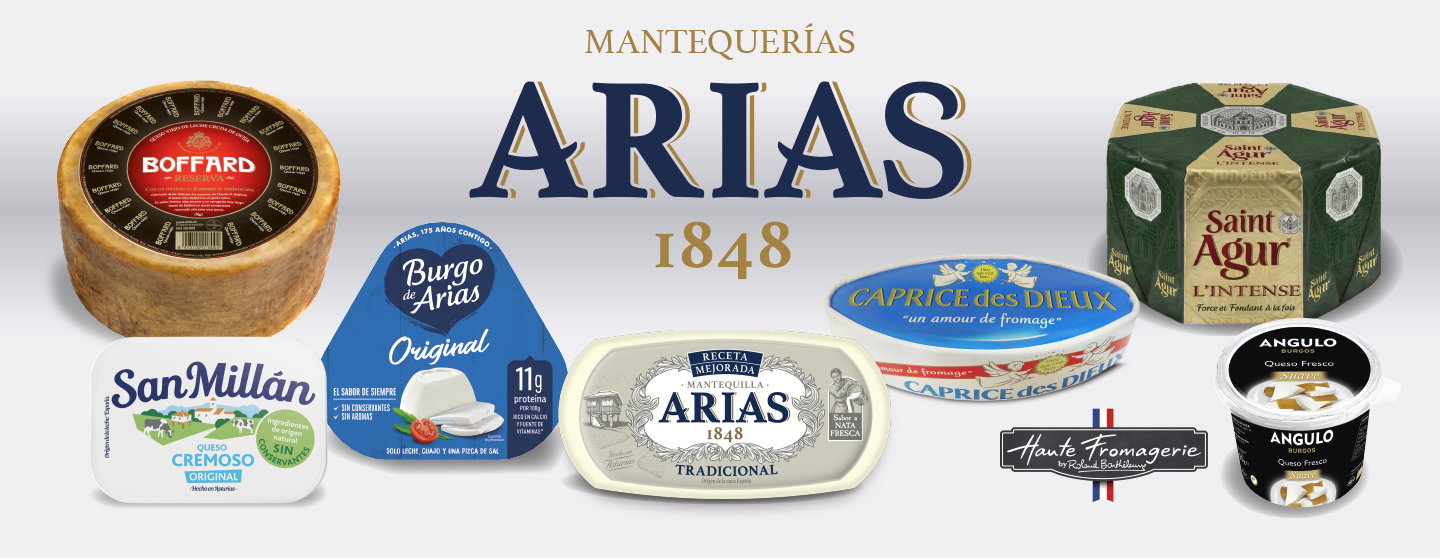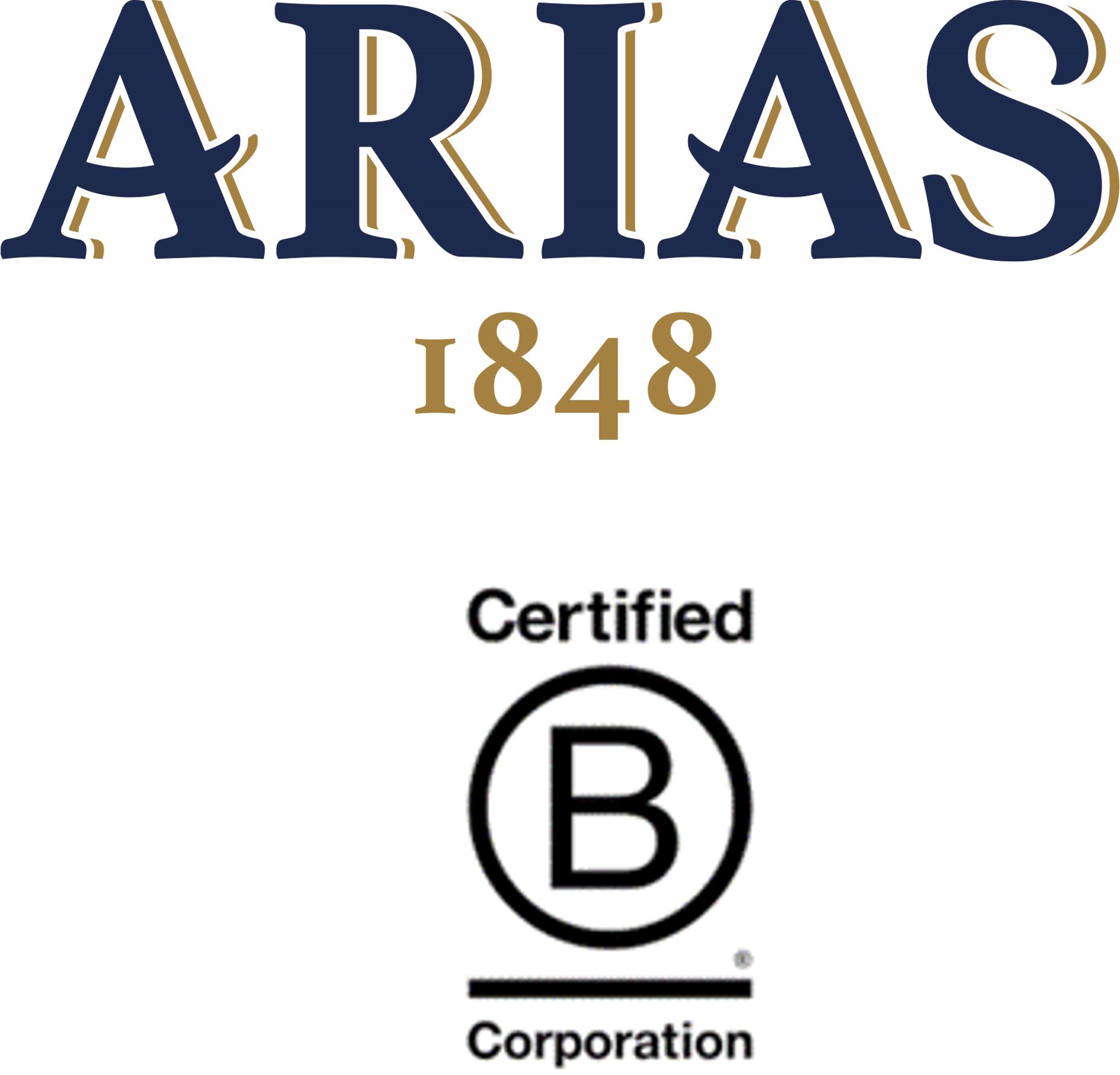

Mantequerias Arias

Madrid, Spain
April 2024
Food products
Manufacturing
Portugal,
Spain
Mantequerías Arias is the oldest dairy company in Spain, founded in Asturias in 1848. Its hallmarks have always been quality, innovation and people. Its commitment to the quality and freshness of its products dates back to the 1920s, and since joining the Savencia Group in 1977 it has been a driving force for innovation in the Spanish cheese market, launching emblematic brands such as Burgos de Arias. Subsequently, it has added to its catalogue brands such as Boffard, the oldest cheese brand in Spain and supplier to the Royal Household since 1882, Angulo and Flor de Ronda -traditional fresh cheeses-, Casa del Campo, a PDO Manchego. As the Spanish and Portuguese subsidiary of the Savencia Fromage&Dairy group, Arias is also responsible for marketing the group's specialty cheese brands such as Caprice des Dieux, Le Rustique, Saint Agur, Roquefort Papillon,Chaumes, Chamois d'Or, Bresse Bleu, Fol Epi and Rambol. Its products include the world champions Epoisses Berthaut, Rogue River Blue and Esquirrou. With 5 factories in Spain, 388 employees and a turnover of 125 million euros, Arias is one of the few medium to large food companies that joins de B CORP movement, thanks to its commitment to being a company with a positive impact on the planet and its suppliers, customers & employees.
Overall B Impact Score
Governance 15.8
Governance evaluates a company's overall mission, engagement around its social/environmental impact, ethics, and transparency. This section also evaluates the ability of a company to protect their mission and formally consider stakeholders in decision making through their corporate structure (e.g. benefit corporation) or corporate governing documents.
What is this? A company with an Impact Business Model is intentionally designed to create a specific positive outcome for one of its stakeholders - such as workers, community, environment, or customers.
Workers 31.5
Workers evaluates a company’s contributions to its employees’ financial security, health & safety, wellness, career development, and engagement & satisfaction. In addition, this section recognizes business models designed to benefit workers, such as companies that are at least 40% owned by non-executive employees and those that have workforce development programs to support individuals with barriers to employment.
What is this? A company with an Impact Business Model is intentionally designed to create a specific positive outcome for one of its stakeholders - such as workers, community, environment, or customers.
Community 11.8
Community evaluates a company’s engagement with and impact on the communities in which it operates, hires from, and sources from. Topics include diversity, equity & inclusion, economic impact, civic engagement, charitable giving, and supply chain management. In addition, this section recognizes business models that are designed to address specific community-oriented problems, such as poverty alleviation through fair trade sourcing or distribution via microenterprises, producer cooperative models, locally focused economic development, and formal charitable giving commitments.
Environment 20.5
Environment evaluates a company’s overall environmental management practices as well as its impact on the air, climate, water, land, and biodiversity. This includes the direct impact of a company’s operations and, when applicable its supply chain and distribution channels. This section also recognizes companies with environmentally innovative production processes and those that sell products or services that have a positive environmental impact. Some examples might include products and services that create renewable energy, reduce consumption or waste, conserve land or wildlife, provide less toxic alternatives to the market, or educate people about environmental problems.
Customers 4.6
Customers evaluates a company’s stewardship of its customers through the quality of its products and services, ethical marketing, data privacy and security, and feedback channels. In addition, this section recognizes products or services that are designed to address a particular social problem for or through its customers, such as health or educational products, arts & media products, serving underserved customers/clients, and services that improve the social impact of other businesses or organizations.